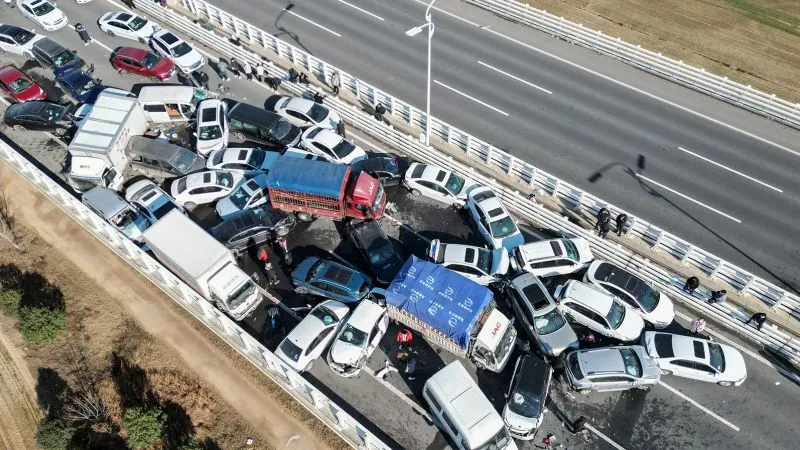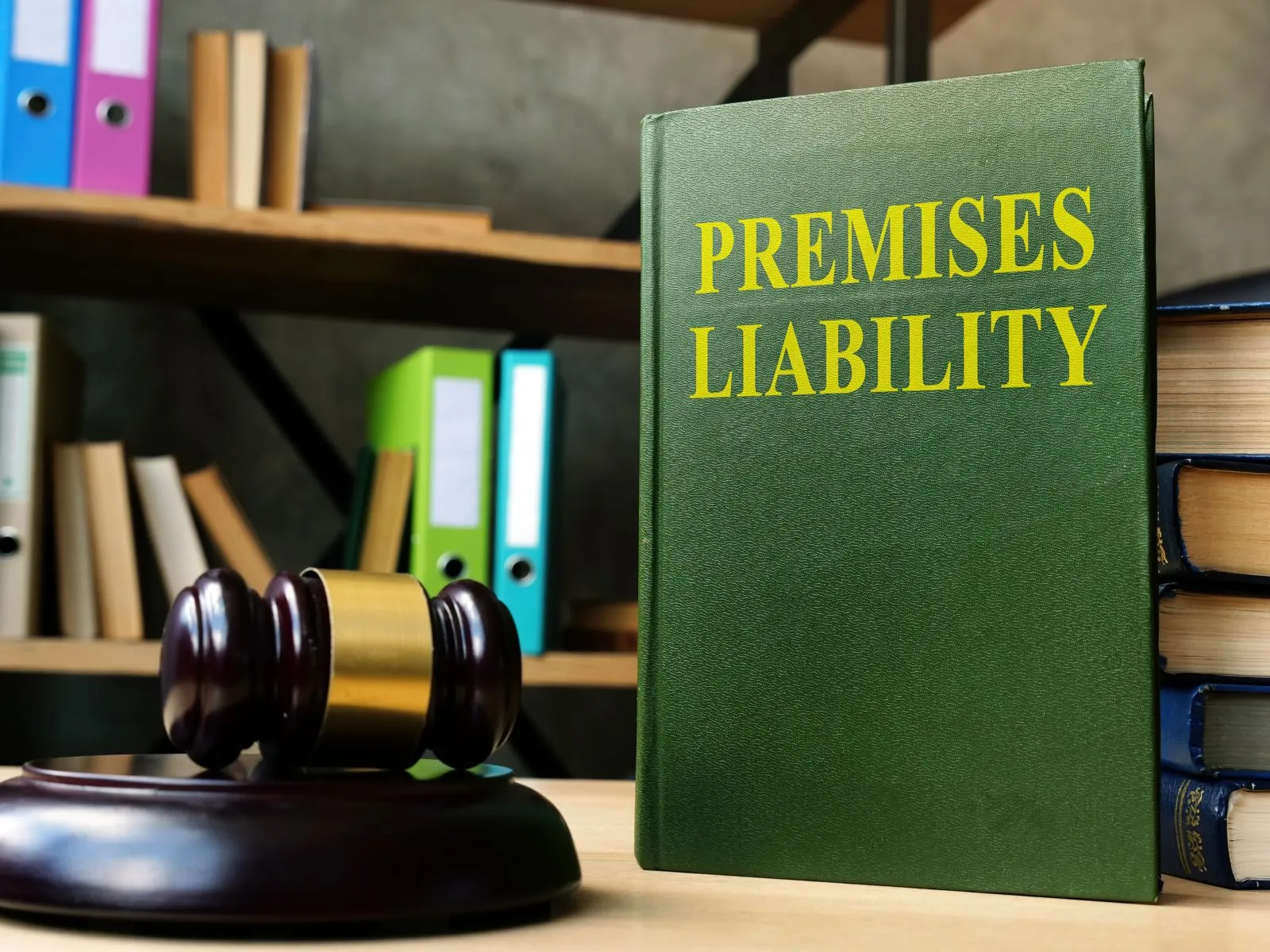Who Is at Fault in a Multiple Car Accident
Getting into a car accident can be a stressful and overwhelming experience, especially when multiple vehicles are involved. One of the key questions that arise in such situations is, “Who is at fault in a multiple car accident?” Determining fault in a multiple car accident involves considering various factors, and having the right legal representation can make a significant difference in the outcome of your case. In Atlanta, Shani Brooks Law stands out as a reliable choice for expert legal assistance in auto accident cases. Let’s delve into the complexities of fault determination in multiple car accidents and why Shani Brooks Law is the right partner for navigating through such challenging situations.
Understanding Fault in Multiple Car Accidents
Rules of the Road
The first step in determining fault is to consider the applicable traffic laws and regulations. These rules establish standards for safe driving practices, such as obeying speed limits, yielding the right of way, and signaling before making turns or lane changes. Violating these rules can contribute to fault assessment.
Driver Negligence
Negligence plays a crucial role in assigning fault. Drivers have a duty to operate their vehicles responsibly and avoid behaviors that could lead to accidents. Examples of negligent actions include distracted driving (e.g., texting while driving), reckless driving (e.g., speeding or aggressive maneuvers), and driving under the influence of alcohol or drugs.
Witness Testimony
Eyewitness accounts can provide valuable insights into how the accident unfolded. Witness statements can corroborate or challenge the narratives provided by the involved drivers, helping to establish a more accurate sequence of events and identify potential instances of negligence or fault.
Police Reports
Law enforcement officers who respond to the scene of the accident often prepare detailed reports documenting their observations, statements from involved parties, and any citations issued. These reports can serve as important evidence in determining fault, especially if they highlight specific violations or behaviors that contributed to the accident.
Expert Analysis
In complex cases or disputes regarding fault, expert analysis may be necessary. Accident reconstruction specialists can use data such as skid marks, vehicle damage, and traffic patterns to recreate the accident and provide insights into factors like speed, braking distances, and possible points of impact. This analysis can be instrumental in clarifying liability. Read the article “Do I Need A Lawyer For Auto Accident“, to guide you why you need to get a lawyer when involved in an auto accident.
Insurance Policies
Insurance companies conduct their own investigations to determine liability for claims. However, their assessments may not always align with legal standards or accurately reflect the complexities of a multiple car accident. Having legal representation can ensure that your rights are protected and that the insurance company’s evaluation is fair and comprehensive.
Common Causes of Multi-car Accidents
Multi-car accidents, also known as chain reaction accidents, can result from various factors, including:
- Chain Reaction Accidents: These occur when one vehicle collides with another, setting off a domino effect involving multiple vehicles. Factors like sudden stops, weather conditions, or driver errors can trigger these accidents.
- Rear-End Collisions: When a vehicle fails to maintain a safe distance and collides with the vehicle in front, it can lead to a chain reaction involving other cars. Tailgating, sudden braking, or distracted driving are common causes of rear-end collisions.
- Distracted Driving: Activities like texting, talking on the phone, eating, or adjusting electronic devices while driving can divert a driver’s attention from the road, increasing the risk of multi-car accidents.
- Speeding: Excessive speed reduces a driver’s ability to react to sudden changes in traffic conditions, such as unexpected stops or lane changes, contributing to chain reaction accidents on highways and busy roads.
Understanding these common causes can help drivers take preventive measures, such as maintaining a safe following distance, staying focused on the road, and obeying speed limits to reduce the likelihood of multi-car accidents.
Why Choose Shani Brooks Law for Your Auto Accident Case
- Expertise in Auto Accident Law: Shani Brooks Law specializes in handling auto accident cases, including those involving multiple vehicles. Their team of legal experts understands the nuances of fault determination and knows how to build strong cases on behalf of their clients.
- Personalized Attention: Every case is unique, and Shani Brooks Law prioritizes personalized attention for each client. They take the time to listen to your story, gather relevant evidence, and develop a legal strategy tailored to your specific situation.
- Negotiation Skills: Resolving a multiple car accident case often involves negotiation with insurance companies and other parties involved. Shani Brooks Law has a track record of successful negotiations, ensuring that their clients receive fair compensation for their injuries, property damage, and other losses.
- Litigation Experience: In cases where a settlement cannot be reached through negotiation, Shani Brooks Law is prepared to advocate for their clients in court. Their litigation experience and courtroom skills enable them to present compelling arguments and fight for maximum compensation.
- Compassionate Support: Dealing with the aftermath of a car accident can be emotionally and physically challenging. Shani Brooks Law provides compassionate support to its clients throughout the legal process, offering guidance, reassurance, and a steadfast commitment to achieving the best possible outcome.
Conclusion
In conclusion, determining fault in a multiple car accident requires a thorough investigation and consideration of various factors. Having a knowledgeable and dedicated legal team like Shani Brooks Law on your side can significantly impact the outcome of your case. If you’ve been involved in an auto accident in Atlanta and need experienced legal representation, don’t hesitate to contact Shani Brooks Law for a consultation. Their expertise, personalized approach, and commitment to client advocacy make them the right choice for navigating the complexities of auto accident cases.
Ready to navigate the complexities of determining fault in a multiple car accident? Trust Shani Brooks Law’s expertise to guide you through legal challenges with personalized attention and proven negotiation skills. Take the first step towards a fair resolution by contacting us today for a consultation.
FAQs: Who Is at Fault in a Multiple Car Accident
How is fault determined in a multiple car accident?
Fault in a multiple car accident is determined by evaluating factors such as traffic laws, driver negligence, witness testimony, police reports, and expert analysis to identify the party or parties responsible for the collision.
What role does insurance play in determining fault?
Insurance companies conduct their own investigations to assess liability, but their evaluations may differ from legal standards. Having legal representation can ensure fair treatment and accurate fault determination.
Can I be partially at fault in a multiple car accident?
Yes, it’s possible for multiple parties to share fault in an accident based on their actions contributing to the collision. Understanding comparative negligence laws can help determine the extent of liability.
How long does it take to resolve a multiple car accident case?
The time to resolve a case varies based on factors like complexity, negotiations, and potential litigation. Working with experienced legal professionals can expedite the process and secure favorable outcomes.
What if the other driver disputes fault in a multiple car accident?
Disputes over fault are common, but thorough investigation and evidence collection can strengthen your case. Legal representation ensures your rights are protected and helps navigate challenges during the claims process.


